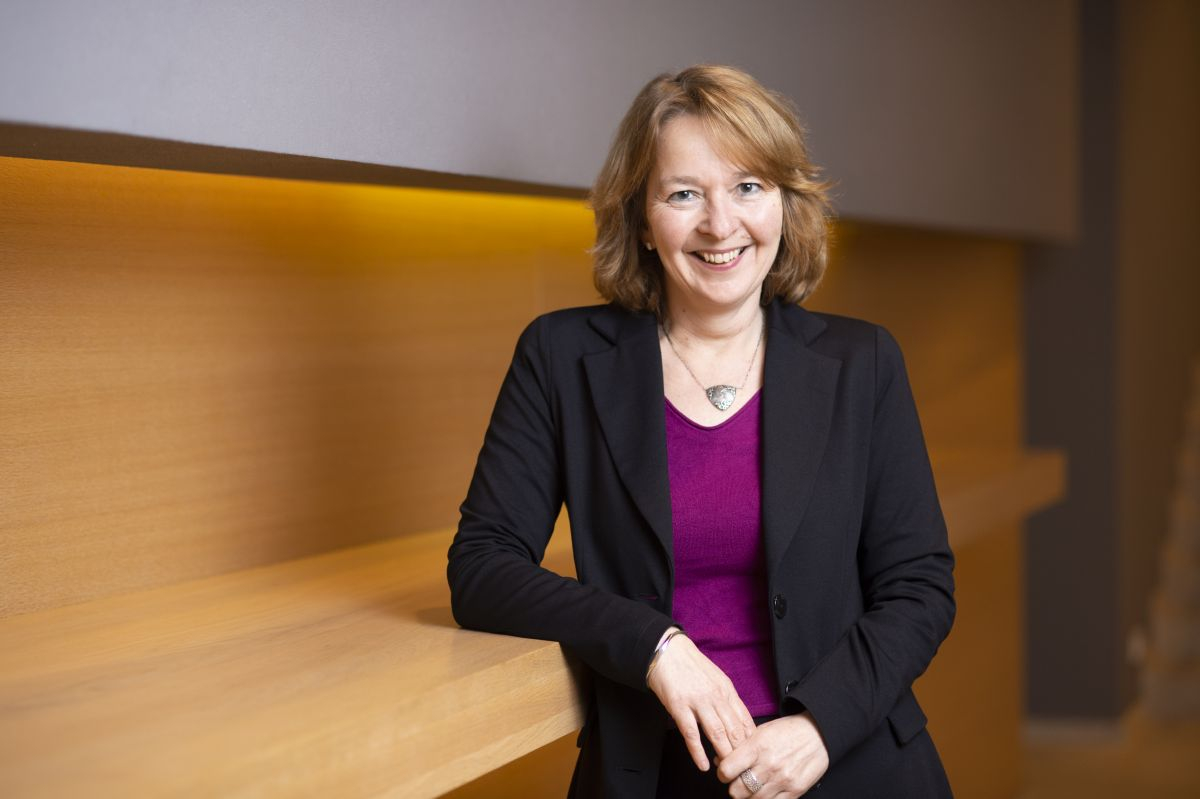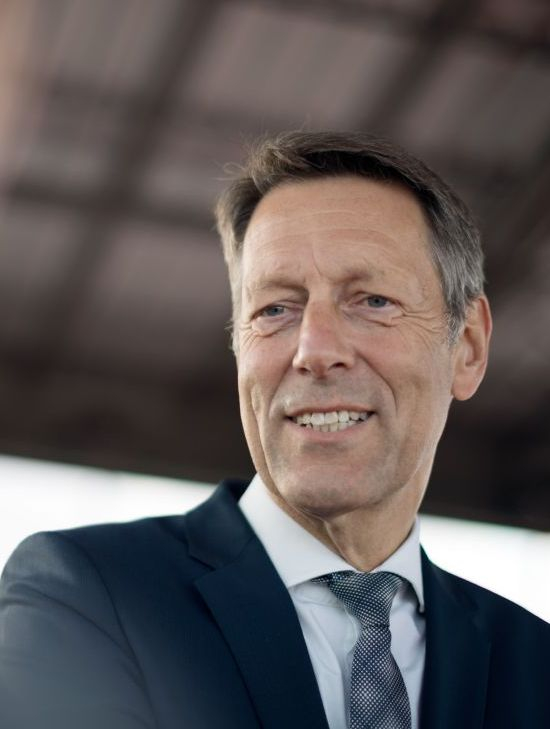
"Swimming ahead of the tide"
The Foundation develops a radical new take on the future: and asks its researchers to do the same. A talk on strategy with Georg Schütte and Henrike Hartmann.
The Volkswagen Foundation is realigning its funding strategy as of 2021, with the three profile areas "Exploration", "Societal Transformations" and "Understanding Research – Evaluation and Science Practice" and the cross-sectional area "Science in Society". In our interview, Dr. Georg Schütte, Secretary General of the Volkswagen Foundation, and Dr. Henrike Hartmann, Head of the Funding Department, give insights into the strategy process and take a look at the challenges the foundation wants to tackle in the future.
What triggered the changed strategy? What was the perceived need for action?
Schütte: Our Foundation practices a good tradition of having external experts hold a mirror up to it every ten years or so. The instrument for this is the overall evaluation. The most recent one ended in June 2020 with a presentation to the Board of Trustees. The panel carried out a methodical survey among our community – both here in Germany and abroad: How do you see the Foundation? What do you expect from it? The feedback led us to rethink our strategy from the bottom up, to reduce the broad variety of funding programs and to seek answers to questions like: What are the emerging major challenges? What contributions can science make towards resolving them? And how can we as a funding foundation create the conditions for science itself, driven by intrinsic curiosity, to ask radically new questions and provide relevant answers?
What we promote should create impact, break through structures, shape the future.
What challenges do you want to take up in the future?
Hartmann: We have formed three new profile areas. The first is called "Exploration". The aim here is to encourage risk taking, i.e. to enter into previously unexplored areas of research with uncertain outcomes. As a funding foundation, we stimulate the desire to experiment and say: failure is part of the game. We accept that a project – despite the very best foundations – may not always achieve what it sets out to do. In my view, this attitude constitutes a unique selling point of our Foundation.
The second area: "Social Transformations". We are surrounded by upheaval in many different areas. The pandemic has acted like a burning glass. Here, science has a duty to develop solutions and assume its social responsibility.
The third profile area, "Understanding Research", is about the system itself: How can science work in the best possible way? What structures does it need to take on the major challenges of the future? We want to create impetus for structural renewal; not only in the scientific community, but also at its margins. This is where the field of science communications plays such an important role.
Where do the ideas for new funding topics come from?
Schütte: In broad terms, they come in two ways. Firstly, in a bottom-up process within the scientific community itself, for example at specialist conferences, in individual discussion, but also in the occasion of expert hearings initiated by the Foundation itself. But of course our own experts are also never short of stimulating ideas themselves, which we then field to the community with a request for feedback. The overriding objective is to create an impact, to bring about structural changes and initiate follow-up projects.

Dr. Henrike Hartmann has headed the funding department since 2015. Previously, she was team leader of "People and Structures" and responsible for several funding initiatives, e.g. in biomedicine.
Which target groups do you specifically want to address through the new funding opportunities?
Schütte: Creative, daring, and inquisitive researchers. We, for our part, are ready to promote unconventional ideas, and we expect that applicants will be able to face critique from peers.
Hartmann: Powerful pressures and dependencies exist in the science system. As a result, many ideas that could possibly be capable of opening up new perspectives never amount to anything. In this respect, we want to pave the way for people who are prepared to say: I don’t just want to swim with the tide – or at least not all the time...
The Foundation is big enough to create a really deep impact.
How does the Volkswagen Foundation see itself going forward?
Hartmann: Ideally, we want to swim ahead of the tide, i.e. discover the future potential of emerging topics early on and then put them on the science map. By supporting daring new research ideas we are encouraging others in mainstream research to do the same. The Foundation is big enough to create a deep impact. And we are small enough to be agile. As a private foundation, we are also independent, so we can decide for ourselves what to put on the agenda. And we do that with the greatest possible flexibility.
Schütte: I would like to emphasize that we not only expect experimentation and a willingness to take risks from our applicants: we also expect the same of ourselves as an institution. We are prepared to tread new territory, too. For example, we were the first science funding institution in Germany to add a "luck of the draw" component to the traditional reviewer process. This "semi-randomized selection process" caused quite a stir – both at home and abroad – meeting with applause as well as criticism. We welcome both. And at the moment, we are dealing with the question of how to best make use of our recently intensified experience with digital communication tools and methods. For example, should our review panels request video presentations in the future? Do we want to offer video chat sessions for our community? How do we become more visible and interactive on social media? We want to continue exploring here, too.

Georg Schütte has been Secretary General of the Volkswagen Foundation since January 1, 2020. Before that, he was State Secretary at the Federal Ministry of Education and Research for ten years.
What was the process of strategy development like? Who was involved?
Hartmann: It was an iterative process in the best sense. Any members of staff who wanted to contribute could do so. I think it was very important that we listened to everyone and gathered our ideas step by step. The process benefited from the fact that we had the recommendations of the overall evaluation to draw on. Moreover – and this was an immensely valuable source of inspiration and an important sounding board – it was accompanied by the Research Committee of the Board of Trustees, which was closely involved and provided ongoing critical-constructive feedback. Taking all this into account, we now have a really solid basis for launching the steps to come.
What can we expect during the transition period?
Hartmann: The transformation process will inevitably involve some funding initiatives coming to an end. The Board of Trustees decided this in December 2020. However, rather than bringing things to an abrupt end, we are organizing a well-communicated phase-out based on partnership. Some initiatives, though, can be assigned to the new profile areas as soon as we have modified them. And finally, we are developing several quite new initiatives that will hopefully appear in our funding offer in the course of 2021.
Keyword financing: Going forward, will the volume of funding be affected due to ongoing low-interest rates?
Schütte: A clear no to that! We are both cautious as well as forward-looking when it comes to how our foundation capital is invested. And despite all the uncertainties connected with the capital and financial markets, we are very confident that we will be able to maintain our annual funding volume in the area of general funding. In any event, there is no "hidden agenda" associated with the realignment of our funding portfolio. We are not restructuring because we want to save money.
What will the Foundation stand for ten years from now?
Schütte: How we work at the Foundation is a continuous learning process. Buzzwords here are agility and digitality. No question that the Foundation will continue to develop and improve. Anyone who generates impulses for others will likewise receive impulses from the outside, be creatively energized and draw inspiration. If we, as a learning organization, continue to embrace change, then not only will the next ten years be successful, but also the decade that follows.


